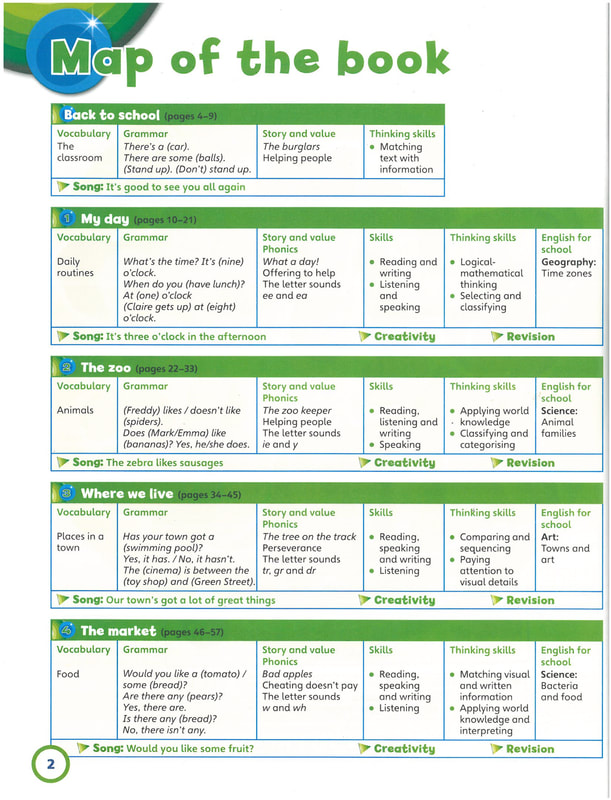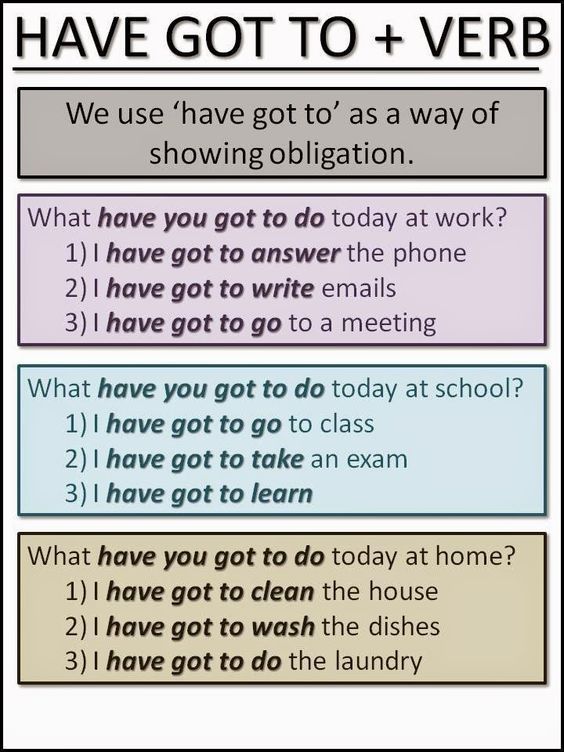Have Got En Ingles
13.08.2019
I've got four dogs - I have got four dogs - Tengo cuatro perros. Todos son lo mismo, pero es mejor dicho 'I've got four dogs' y no 'I have got four dogs', no se escucha tan bien. En segundo lugar, 'I got' puede significar el pasado de obtengo.
| have gotdefinition in French Conjugación [ES] English synonyms Conjugator [EN] in context images
WordReference English-Spanish Dictionary © 2019:
'have got' aparece también en las siguientes entradas: de los nervios - estar mal de Forum discussions with the word(s) 'have got' in the title: A painful emotional event that we have never got over See Google Translate's machine translation of 'have got'.Bears have got fur, The bear has got fur (article) - grammar could have got hold of... Could we have got pulled through? couldn't/mightn't have got Do you have / Have you got? - grammar Do you have a visit or have you got a visit? - grammar Do you have a... ? / Have you got a...? - grammar Do you have any brothers? / Have you got any brothers? doesn't got / doesn't have - grammar Dogs have also got a strong working intelligence don't have / haven't got - grammar Don't have / haven't got - grammar get a scholarship - I have got a scholarship get bored/ got bored / have got bored? - grammar Girls have got to stick together got to / have to - grammar hasn't got / doesn't have / hasn't have / got - grammar have / got - grammar have / got an answer - grammar have / have got - grammar Have / have got - grammar have / have got - grammar have a car / got a car - grammar Have a clue or Have got a clue have brand new bag - Papa's Got A Brand New Bag have fun / got fun - grammar have got - grammar have got more... In other languages: French Italian Portuguese Romanian German Dutch Swedish Russian Polish Czech Greek Turkish Chinese Japanese Korean Arabic |
| ||||||||||||||||||||||||||||||||
 significan 'tener' en español. Have got es más informal y se usa mucho en el inglés hablado. Los dos se usan para expresar posesión. A continuación se muestra have got y have conjugados en el presente simple. Para saber más en nuestroCURSO DE INGLÉS GRATIS
significan 'tener' en español. Have got es más informal y se usa mucho en el inglés hablado. Los dos se usan para expresar posesión. A continuación se muestra have got y have conjugados en el presente simple. Para saber más en nuestroCURSO DE INGLÉS GRATISYahoo In English
VÍDEO
TO HAVE GOT
Afirmativo
I have got a pen
He / she / it has got a pen
We / you / they have got a pen
I've got a pen
You've got a pen
He's got a pen
She's got a pen
It's got a pen
We've got a pen
You've got a pen
They've got a pen
Negativo
I haven't got a pen
He / she / it hasn't got a pen
We / you / they haven't got a pen
Have you got a pen?
Yes, I have
No, I haven't
Has he / she /it got a pen?
Yes, he/she/it has
No, he/she/it hasn't
Have you got a pen?
Yes, we have
No, we haven't
Have they got a pen?
Yes, they have
No, they haven't
Como véis, el verbo to have got es irregular y no sigue las reglas de conjugación del presente simple en negativo e interrogativo.
TO HAVE
Afirmativo
I have a pen
He / she / it has a pen
We / you / they have a pen
Negativo
I don’t have a pen
He / she / it doesn’t have a pen
We / you / they don’t have a pen
Interrogativo
Do you have a pen?
Yes, I do
No, I don't
Does he / she / it have a pen?
Yes, he /she / it does
No, he / she / it doesn't
Do you have a pen?
Yes, we do
No, we don't
Do they have a pen?
Yes, they do
No, they don't
El verbo to have, sin embargo, sí sigue las reglas de conjugación del presente simple y usa don't / doesn't en negativas y do / does en interrogativas.
Cuidado
No se puede usar la forma contraída con have pero sí con have got.
I’ve got two sisters OK
I have two sisters OK
I’ve two sisters X
Utilizamos tanto have got como have en el sentido del verbo 'tener' en español para:
→ Hablar de cosas que poseemos
My parents have got a camper van = my parents have a camper van (mis padres tienen una caravana)
→ Describir rasgos físicos
My sister has got blue eyes = my sister has blue eyes (mi hermana tiene los ojos azules)
→ Expresar malestar físico
I have got a headache = I have a headache (me duele la cabeza, tengo dolor de cabeza)
¡Cuidado!
Con las rutinas diarias (ducharse, desayunar, comer, cenar, darse un baño...) se usa únicamente to have.
I usually have breakfast at 8:00 in the morning (normalmente desayuno a las ocho de la mañana) Peter has a shower before going to work (Peter se ducha antes de ir a trabajar)
Sarah always takes a bath after work (Sara siempre se da un baño después de trabajar)
¡Excepciones!
Con la edad y las palabras hambre, sed, fríoy sueño no utilizamos ni
 have got ni have, sino el verbo to be.
have got ni have, sino el verbo to be. Tengo 20 años → I am twenty years-old
Tenemos sed → We are thirsty
¿Tienes sueño? → Are you sleepy?
Para indicar obligación ('tener que') utilizamos normalmente have to (véase have to), aunque también podemos utilizar have got to en afirmativas.
I have to clean the house (tengo que limpiar la casa)
I don't have to clean the house (no tengo que limpiar la casa)
Do you have to clean the house? (¿Tienes que limpiar la casa?)
I've got to go (me tengo que ir)
Nota
En estilo informal*, podemos encontrar gotta como abreviación de got to, equivalente a have to.
I gotta go* = I have to go (me tengo que ir)
EJERCICIO
Corrige las frases y preguntas a continuación y después haz clic aquí para ver las respuestas. ¡Cuidado! No todas las frases o preguntas contienen fallos.
1. He have got a sister and two brothers.
2. We have a blue car.
3. I has got a book about flowers.
4. Do he has a brother?
5. She have got a sister.
6. Do they have got a big car?
7. Has she got a new car?
8. I’ve a brother.
9. Have they a blue car?
10. He got a cat and a dog.
ENLACES RELACIONADOS
¿Te ha gustado el post? Dale a g+1, compártelo en tus redes sociales o deja un comentario dando tu opinión :)
Imagen: Have you got your ticket? por Alan bajo licencia CC BY-NC-SA 2.0
Comments are closed.